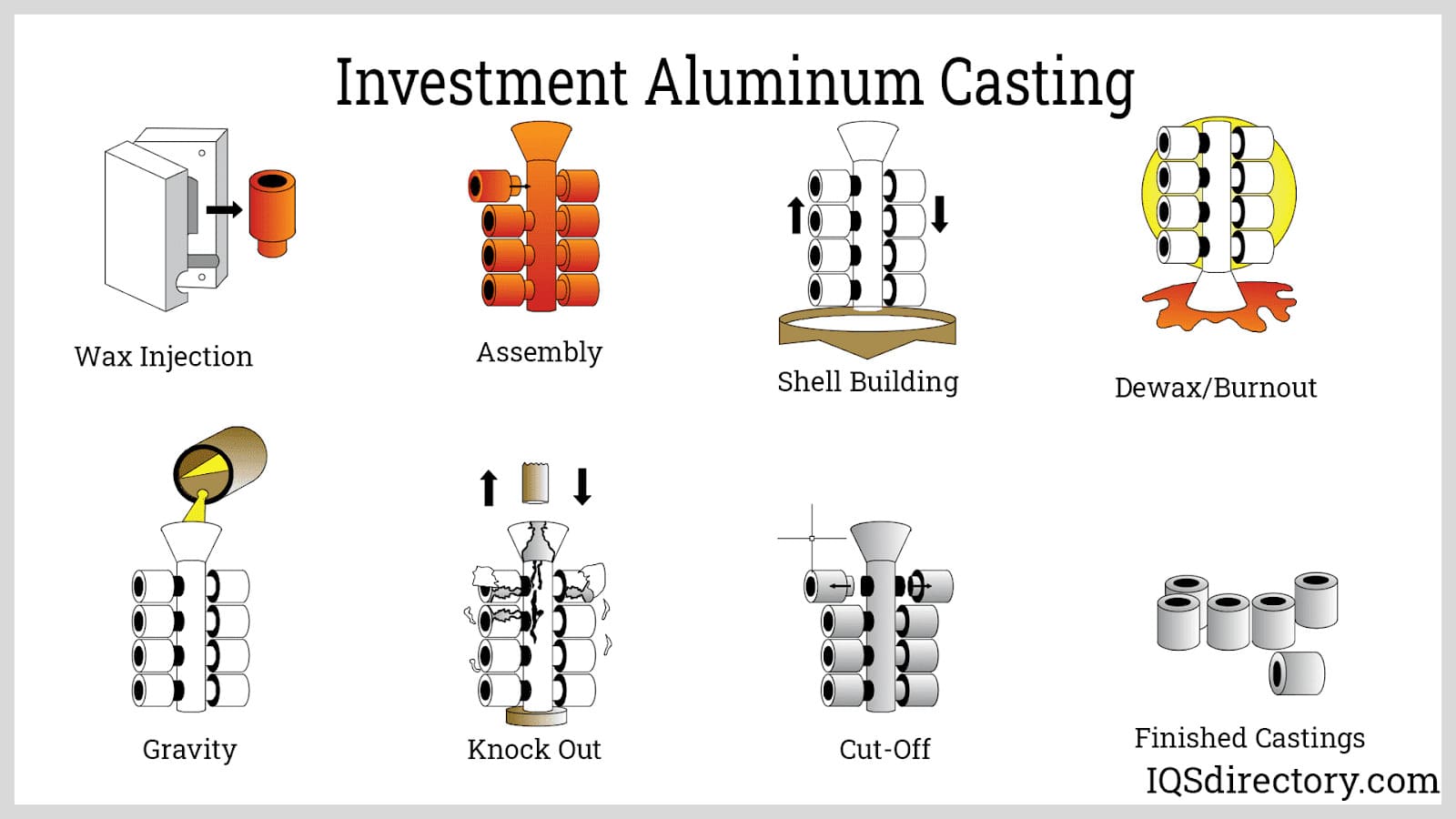The Facts About Stahl Specialty Company Uncovered
The Facts About Stahl Specialty Company Uncovered
Blog Article
See This Report about Stahl Specialty Company
Table of ContentsFascination About Stahl Specialty CompanyEverything about Stahl Specialty CompanyExcitement About Stahl Specialty CompanyThings about Stahl Specialty CompanyStahl Specialty Company Can Be Fun For Anyone
The refined distinction hinges on the chemical material. Chemical Contrast of Cast Light weight aluminum Alloys Silicon advertises castability by decreasing the alloy's melting temperature and improving fluidity throughout spreading. It plays a crucial role in allowing intricate mold and mildews to be filled up precisely. Additionally, silicon adds to the alloy's strength and put on resistance, making it useful in applications where longevity is crucial, such as automotive components and engine elements.It additionally improves the machinability of the alloy, making it less complicated to process right into finished items. By doing this, iron adds to the general workability of light weight aluminum alloys. Copper boosts electric conductivity, making it helpful in electrical applications. It additionally improves corrosion resistance and contributes to the alloy's overall stamina.
Manganese adds to the strength of aluminum alloys and boosts workability. Magnesium is a light-weight element that offers stamina and effect resistance to light weight aluminum alloys.
Zinc improves the castability of light weight aluminum alloys and aids regulate the solidification procedure during casting. It enhances the alloy's stamina and firmness.
A Biased View of Stahl Specialty Company
Since aluminum-silicon alloys have good spreading residential or commercial properties, high gas residential or commercial properties, simple processes, and superb rust resistance, aluminum-silicon alloys are most commonly made use of in the die-casting industry in the house and abroad. At the same time, aluminum-silicon alloys are additionally relatively very early and commonly identified alloys established and made use of in die-casting. After constant study and enhancement, most of the present global mainstream aluminum-silicon alloys have been wrapped up and are nothing even more than A356, A360, A380, ADC12, B390, and A413.
The main thermal conductivity, tensile toughness, yield strength, and elongation differ. Amongst the above alloys, A356 has the greatest thermal conductivity, and A380 and ADC12 have the lowest.

The Ultimate Guide To Stahl Specialty Company
In precision spreading, 6063 is fit for applications where elaborate geometries and top quality surface area finishes are vital. Examples include telecommunication rooms, where the alloy's premium formability enables for streamlined and aesthetically pleasing styles while keeping architectural integrity. Likewise, in the Lighting Solutions market, precision-cast 6063 components create stylish and effective lights components that call for detailed forms and good thermal performance.
(https://urlscan.io/result/0195897f-20fd-7001-a6ac-ce9798aafe78/)
It causes a finer surface area finish and better deterioration resistance in A360. The A360 shows remarkable elongation, making it excellent for complicated and thin-walled components. In precision casting applications, A360 is well-suited for sectors such as Consumer Electronics, Telecommunication, and Power Devices. Foundry. Its boosted fluidness allows for detailed, high-precision parts like smart device housings and interaction device housings.

In accuracy casting, light weight aluminum 413 shines in the Customer Electronics and Power Devices markets. This alloy's premium rust resistance makes it an outstanding choice for exterior applications, guaranteeing durable, resilient items in the stated sectors.
Stahl Specialty Company Things To Know Before You Get This
The light weight aluminum alloy you pick will substantially impact both the spreading procedure and the residential properties of the final item. Due to the fact that of this, you should make your decision meticulously and take an educated approach.
Establishing one of the most suitable aluminum alloy for your application will mean considering a large range of attributes. These relative alloy features comply with the North American Pass Away Spreading Organization's guidelines, and we've split them right into two categories. Foundry. The initial classification addresses alloy attributes that influence the production process. The second covers characteristics influencing the homes of the final item.
The alloy you choose for die spreading directly influences several facets of the casting procedure, like how simple the alloy is to work with and if it is susceptible to casting defects. Warm cracking, likewise referred to as solidification splitting, is a common die spreading problem for light weight aluminum alloys that can lead to internal or surface-level splits or splits.
Stahl Specialty Company Things To Know Before You Buy
Specific light weight aluminum alloys are more vulnerable to hot splitting than others, and your option needs to consider this. An additional usual defect found in the die casting of aluminum is die soldering, which is when the cast adheres to the die walls and makes ejection tough. It can harm both the cast and the die, so you should seek alloys with high anti-soldering properties.
Corrosion resistance, which is you can look here currently a notable feature of light weight aluminum, can vary considerably from alloy to alloy and is an essential particular to take into consideration depending upon the environmental problems your item will be exposed to. Put on resistance is one more building frequently sought in aluminum items and can separate some alloys.
Report this page